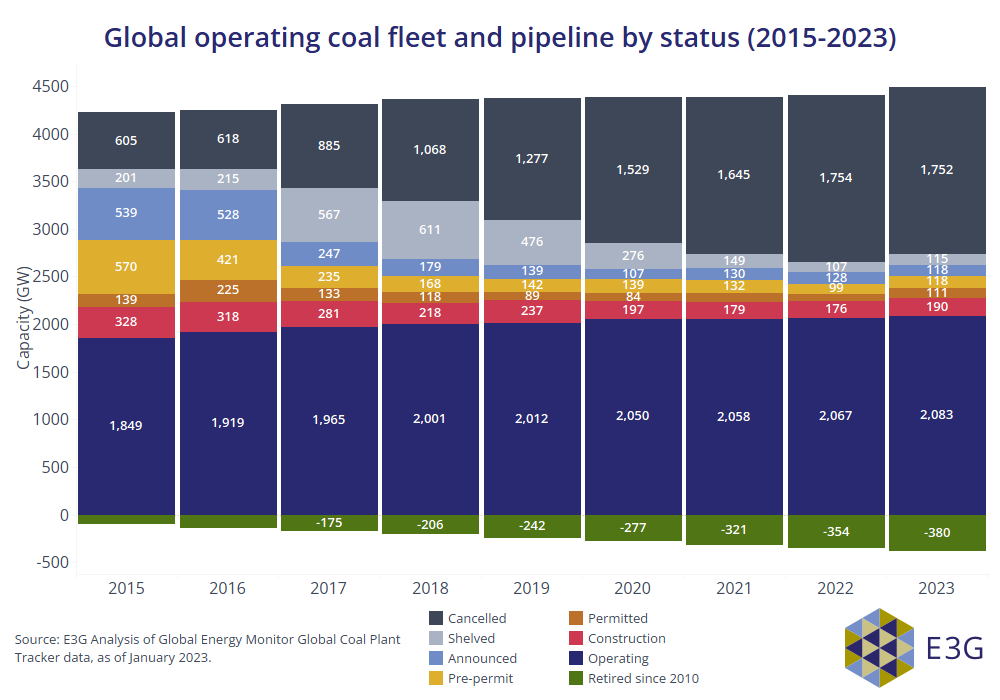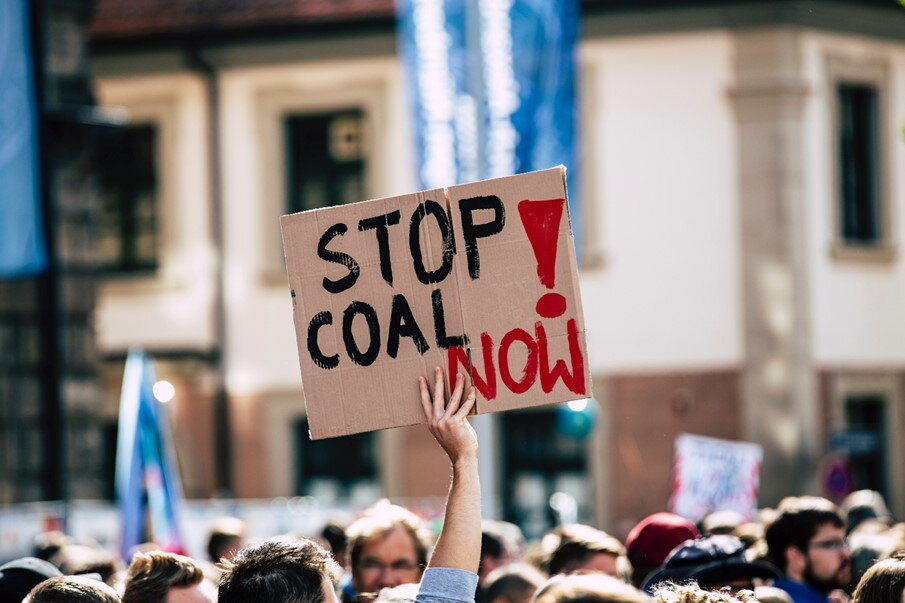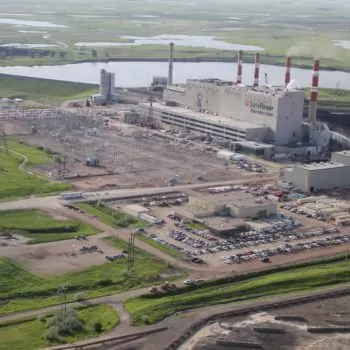Ending the further construction of new coal-fired power plants is critical to preventing runaway climate change. “No New Coal” is a call to action with significant momentum: real-world trends are combining with political and diplomatic pressure for action. United Nations Secretary-General Antonio Guterres has been calling for No New Coal since 2019.
This explainer outlines the value of No New Coal as an iconic and practical milestone towards limiting global carbon emissions and accelerating the coal-to-clean power sector transition.
Why is the end of new coal power important?
Coal is the dirtiest fossil fuel and the single largest source of global carbon emissions. The IEA has made it explicit that “reducing coal power sector emissions in line with the 1.5-degree goal means no new development of unabated coal-fired power plants” and that “the first milestone in the [Net Zero Energy] Scenario is for no new unabated coal to be approved for development from now forward”.
Building new coal power plants comes with significantly higher socio-economic and environmental costs than clean energy. They cause pollution and negative health impacts. They also saddle countries with expensive, and often unreliable, electricity and damage their economic competitiveness.
To stay on track to meet the Paris Agreement temperature goals, all existing coal plants must be retired by 2030 in the world’s richest countries, and by 2040 everywhere. Each new coal plant makes this more challenging and puts the achievement of these goals at risk.
No New Coal means stopping new coal power plants
No New Coal may require different actions in different contexts:
- For countries with planned new coal plants, No New Coal is a practical request to cancel any remaining pre-construction projects and step up investment in clean alternatives
- Countries that are no longer considering new coal can publicly affirm their commitment to No New Coal and embrace a coal-free future.
- Public and private financial institutions can accelerate this global coal-to-clean transition, by stopping financing new coal projects, and redirecting finance into clean power projects.
No New Coal is within reach
Globally, the number of proposed coal power plants has collapsed by 72% since the 2015 Paris Agreement. Pre-construction capacity outside China is at its lowest level ever, with the rest of the world driving forward with less than 100 GW of pre-construction capacity under consideration. China, however, is taking a diverging pathway in the opposite direction, with major increases in new coal capacity proposed and entering into construction in 2022.
As of January 2023, 33 countries plan to build new coal plants. 13 of these have only one project remaining. Many proposed plants are facing serious headwinds, from securing finance to legal battles, and consequently are unlikely to be built.

Ahead of COP27, 98 countries either explicitly committed to No New Coal or had considered coal in the past decade but no longer have any active planned projects.
Clean energy is a clear alternative to new coal
- Renewable energy is cheaper than fossil fuels, particularly coal, in most contexts, with the cost of clean power projected to fall further. Renewables now represent a cheaper alternative to almost all new coal power plants still under consideration, as tracked by Transition Zero’s coal-to-clean price index.
- Recent projections from the IEA find that renewables will replace coal as the largest source of electricity generation globally by early 2025, highlighting the fundamental transformation underway across the global electricity sector
Practical actions to avoid new coal construction
- National, sub-national or regional governments can use planning policy, legislation, voluntary initiatives, and energy strategy processes to restrict the construction of new power plants:
- As far back as 2009, the UK introduced permitting requirements and emissions standards to ensure No New Coal without carbon capture and storage;
- In 2018, Chile worked with the electricity generating companies to agree a voluntary sector plan for No New Coal and a phase-out pathway;
- In 2020, The Philippines introduced a moratoria on new permits to pre-construction coal power plants;
- In 2021, Malaysia announced an end to new coal in its national energy plan;
- In 2021, Sri Lanka cancelled the last remaining proposed coal projects, confirmed this commitment in its Nationally Determined Contribution (NDC) to the UNFCCC, and championed the launch of the No New Coal Power Compact.
- National and sub-national governments can join networks and alliances, like the Powering Past Coal Alliance and the No New Coal Power Compact.
- National and sub-national governments can also make No New Coal commitments in international fora, such as UN General Assembly or the annual UNFCCC Conference of Parties, e.g., COP28.
- States that have pledged to cease overseas financing of new coal power, notably China, South Korea and Japan, should realise these commitments and instead support clean energy alternatives to coal.
- Financial institutions can reduce private coal finance by implementing exclusion policies on their underwriting and lending activities.
- Governments can institute regulatory agendas to disincentivise private international financing of new coal projects.
E3G and partners have a large ongoing body of work on No New Coal and welcome collaboration with interested parties. For further information, please email Katrine Petersen.


